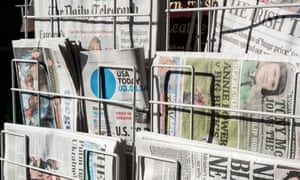#5 - 28/09/2015: Facebook down for second time in a week
#7 - 08/10/15: Facebook gets emotive
#8 - 07/10/2015: Google speeds up news article downloads on mobile
devices
#10 - 12/10/2015: Five predictions for the future of publishing
#11 - 22/10/2015: Google launches €150m fund for publishers' digital news projects
#11 - 22/10/2015: Google launches €150m fund for publishers' digital news projects
#13 - 24/10/2015: Facebook Admits Its App Drains iPhone Battery
#14 - 28/10/2015: TalkTalk Hack: Ransom Demand Received
#15 - 1/11/2015: UK And US Prepare For Cyber Attack Stress Test
#17 - 5/11/2015: BBC says public back its online journalism even if it hurts papers
#19 - 19/11/2015: Newsquest fires veteran executives and orders them to quit the office
#20 - 17/11/2015: The Murdochs: how Keith's legacy became Rupert's obsession
29 Hollywood's ties with Silicon Valley threaten to squeeze out the British media
30 Boston Globe reporters forced to deliver papers by hand amid distribution crisis.
31 Make or break for the Sun and more consolidation
32 Some New Year resolutions for the Guardian
33 The #BringBackOurGirls of 2016: what will dominate Africa's Twittersphere this year?
34 Newsquest/Gannett forced to change policy over remote subbing




